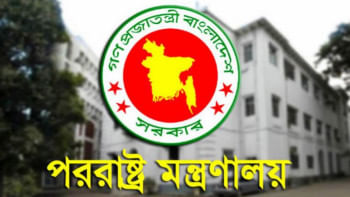Virtual healthcare, once a hard sell, can’t keep up with demand now

Virtual healthcare service has gained traction in Bangladesh in the last few weeks as senior consultants and professors have put their private practice on hold while people are less inclined to visit hospitals and clinics to cut the risk of contracting the deadly coronavirus.
Patients are availing basic healthcare services by consulting doctors via video conferencing. Some senior professors are also trying to assess and treat patients using Facebook Messenger and WhatsApp.
Indian online health initiatives are also wooing local patients through digital channels against the backdrop of travel bans.
With the government declaring general holiday from March 26 to curb the spread of the coronavirus, healthcare-related digital platforms are getting a lot of hits.
Some platforms stated that calls had gone up four to five times compared with what was just a month back.
To support the growing demand of patients, a virtual hospital, HelloDoc, was launched on Tuesday, the first-of-its-kind in the country.
Patients can consult 42 senior consultants and professors through video channels, get tests carried out through visits of sample collectors and avail home deliveries of lifesaving medicines.
Kotha, a local social and lifestyle mobile application, with digital platforms Amarlab and Ergo Ventures initiated the platform. The promoters say patients would be served free of cost as long as the pandemic persists.
Currently, there are about 15 digital healthcare service providers, according to the Access to Information (a2i), which is run under the Information Communication Division. The a2i is trying to coordinate among the platforms.
It has already promoted the platforms and is meeting up with them regularly. On Wednesday, there was also an online consultation among the entities.
"Definitely telemedicine or video conferencing could be the best solution in this situation when the COVID-19 is affecting the country," said Anir Chowdhury, senior policy adviser of the a2i. "And we are trying to promote that."
About 80 per cent of the medical services can be provided through video conferencing, said Aftab Hossain, chief executive officer of Olwel Digital Hospital, a Finland-based start-up, which has been working in Bangladesh for three years.
Olwel was born to provide on-call doctors' support at the doorstep of patients. The platform has gained a lot of popularity, he said.
It has rolled out video-conferencing support and there are 40 professors and senior consultants on its pool.
Currently, Olwel is organising about 20 video sessions per day and most of those connect with specialists.
"Lots of specialists have stopped visiting chambers and we are bridging consultants with patients through video calling."
In the process, doctors can stay home and Olwel is connecting them to patients through the internet.
The fee depends on consultants; it ranges from Tk 200 to Tk 600 per session. The fee includes Olwel calling back patients to check up on their conditions.
The on-demand healthcare solution provider will soon roll out a mobile application, which will also help them reduce technical challenges.
Olwel is planning to take some calls free of charge once the service goes live on the app by next week, Hossain added.
Praava Health, another big player in this sector, says the number of calls it receives has gone up fivefold since the shutdown was declared on March 26.
Now, it is receiving about 70 to 80 calls a day and more than half are about the coronavirus-related issues, said Shakib Hadi, brand manager of the digital healthcare system.
Praava is also organising group calls for corporates where a good number of executives gather to have their queries answered by senior consultants. It has already run eight conference calls for different corporate houses.
It charges Tk 1,000 to Tk 1,200 for every video conversation with a specialist. Home sample collections are being charged Tk 1,000.
Through Praava's platform, customers can pre-book doctors for consultation by dialling the short code 10648, he added.
There are also some international players offering the services, such as MilVik and Tonic. Mobile operators earlier also provided healthcare support through digital platforms, which were accessible through short code 789.
Some platforms are organising live sessions on Facebook to address different issues and anyone can attend and ask questions.
However, of all of these initiatives, the government is handling most of the calls through the National Health Call Centre. Every day, it is receiving 80,000 to 90,000 calls and the service is completely free.
Local software firm Synesis IT has developed a platform and has provided 70.72 lakh services since its inception, of which 18.15 lakh were related to the coronavirus and were delivered from March 8 to April 14.
The service was started in 2008 for mobile operators and later the government accepted it, said Rupayan Chowdhury, group CEO and co-founder of Synesis IT.
The average number of daily calls was hovering around 5,000 to 8,000 but it rose to 25,000 per day during the influx of chikungunya and dengue outbreak, which prompted them to increase capacity.
Another government initiative, 333, a national short code, handles a huge number of calls per day where a pool of doctors has been formed following the Uber model, meaning doctors connect with patients whenever they have time.
Some Facebook groups of doctors are also serving patients for free.
One of them is Dhaka College Friends '97, a group of students of Dhaka College who passed Higher Secondary Certificate exam in 1997.
A good number of students from the batch have become physicians and they are serving patients through Facebook Messenger and voice calls.
Pharmaceutical companies that have online presence and companies that collect samples for laboratory tests are also getting a lot of hits.
Pharmacy.com.bd is getting at least five times the number of regular hits, said Saiful Islam, the platform's head of sales.


 For all latest news, follow The Daily Star's Google News channel.
For all latest news, follow The Daily Star's Google News channel. 



Comments